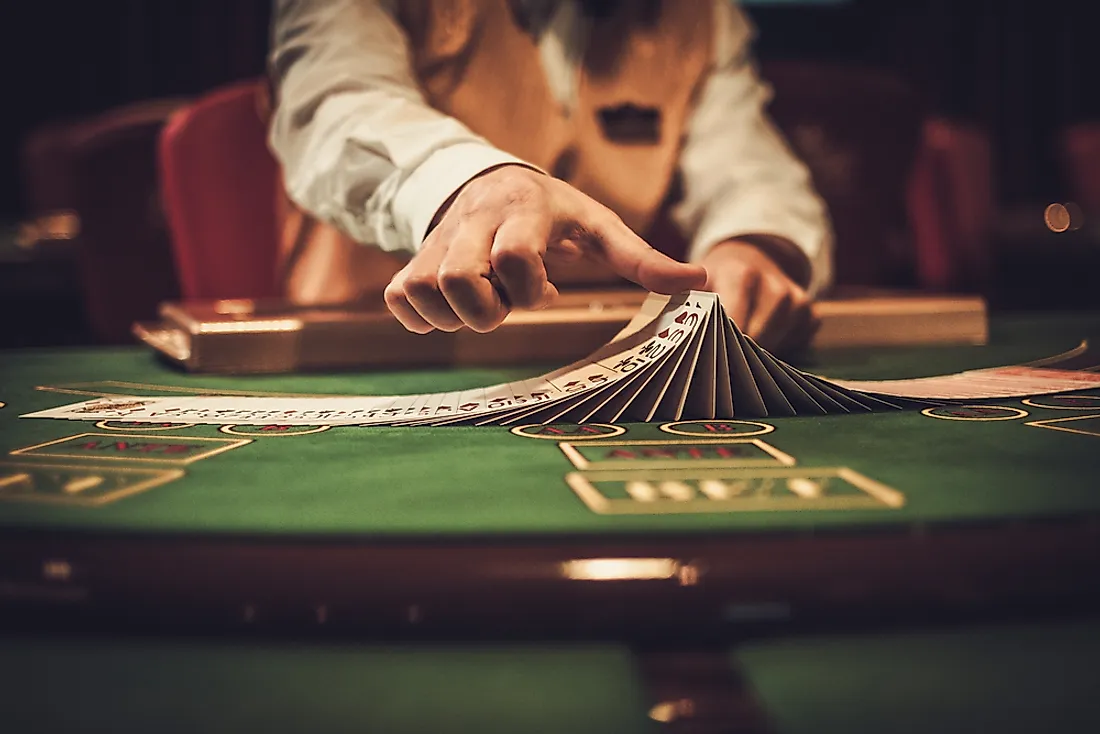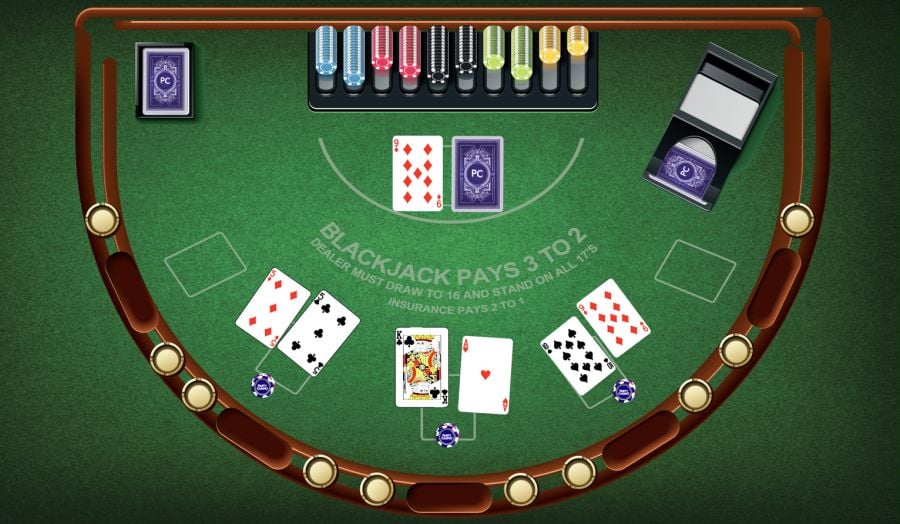Blackjack is one of the most popular card games in casinos around the world. Its blend of strategy, chance, and social interaction has captivated players for centuries. Originating from a simple French game called “Vingt-et-Un,” which means “Twenty-One,” blackjack has evolved into a staple in both land-based and online casinos. This article will explore the history, rules, strategies, variations, and cultural significance of blackjack, as well as answer some frequently asked questions about this beloved game in K9CC.
The History of Blackjack

Origins of the Game
The roots of blackjack can be traced back to the early 17th century in France. The game was known as “Vingt-et-Un,” which translates to “Twenty-One.” It gained popularity among French aristocrats and eventually made its way to the United States in the early 1800s. As the game spread across America, it underwent various changes that led to the modern version we know today.
In the early days, gambling was often illegal in many parts of the U.S., leading to underground gaming houses where blackjack thrived. The game’s simplicity and fast pace made it an instant favorite among gamblers. By the late 19th century, the game had become a staple in American casinos, particularly in Nevada, where gambling was legalized.
Evolution of Rules
As blackjack gained traction, different variations emerged, each with its own set of rules. One significant change was the introduction of the “blackjack” payout, which offered players a bonus for achieving a natural twenty-one with an ace and a ten-value card. This rule not only increased the game’s appeal but also added an element of excitement.
Over time, casinos began to implement house rules that varied from one establishment to another. These included rules regarding splitting pairs, doubling down, and dealer actions on soft hands (hands containing an ace counted as eleven). Such variations have contributed to the game’s enduring popularity, as players can choose from a range of options depending on their preferences.
Cultural Impact
Blackjack’s influence extends beyond the casino floor; it has permeated popular culture through literature, film, and television. Iconic movies like “21” and “Casino Royale” have showcased the thrill of blackjack, while books such as “Bringing Down the House” have chronicled real-life stories of card counting and gambling exploits.
The game has also inspired numerous tournaments and competitions, drawing players from around the globe. Events like the World Series of Blackjack and various online championships celebrate the skill and strategy involved in mastering the game, further solidifying its status as a cultural phenomenon.
See more: K9 Bet
Understanding the Rules of Blackjack

Basic Gameplay
At its core, blackjack is a straightforward game involving a standard deck of 52 cards. The objective is to beat the dealer by having a hand value closer to 21 without exceeding it. Each player starts with two cards, and they can choose to “hit” (take another card) or “stand” (keep their current hand). Face cards are worth ten points, aces can be worth either one or eleven, and all other cards retain their face value.
Players must make strategic decisions based on their hand and the dealer’s visible card. If a player’s hand exceeds 21, they “bust” and lose the round automatically. The dealer also plays according to specific rules, typically hitting until reaching a minimum hand value of 17.
Betting Options
Before the game begins, players place their bets on the table. In addition to the standard bet, players may have the option to make side bets, such as insurance when the dealer shows an ace. Insurance allows players to wager on whether the dealer has a blackjack, providing a safety net if they suspect the dealer’s hand is strong.
Another common betting option is the ability to double down, where players can double their initial bet after receiving their first two cards. This move is often employed when players feel confident about their hand and want to maximize potential winnings.
Dealer’s Role
The dealer plays a crucial role in blackjack, acting as both the facilitator and the opponent. Unlike players, dealers follow strict guidelines for their actions, which adds an element of predictability to the game. They must hit on hands valued at 16 or lower and stand on 17 or higher, including soft 17s (a hand containing an ace valued as eleven).
Understanding the dealer’s behavior can significantly impact a player’s strategy. For instance, if the dealer shows a weak card, players may choose to take more risks, while a strong dealer card might encourage a more conservative approach.
Strategies for Winning at Blackjack

Basic Strategy
Mastering basic strategy is essential for any player looking to improve their chances of winning at blackjack. This strategy involves making mathematically sound decisions based on the player’s hand and the dealer’s upcard. Various charts and tables outline optimal moves for every possible scenario, helping players minimize the house edge.
For example, if a player has a total of 12 and the dealer shows a 4, basic strategy suggests standing, as the dealer is likely to bust. Conversely, if the player has a total of 16 against a dealer’s 10, hitting would be the recommended action to avoid busting.
Card Counting Techniques
Card counting is a technique used by skilled players to gain an advantage over the house. By keeping track of the ratio of high to low cards remaining in the deck, players can adjust their betting and playing strategies accordingly. While card counting is not illegal, many casinos employ countermeasures to deter this practice, such as using multiple decks and shuffling frequently.
There are various card counting systems, ranging from simple to complex. The Hi-Lo system is one of the most popular, assigning values to cards and allowing players to maintain a running count. When the count is favorable, players can increase their bets, capitalizing on the higher likelihood of drawing advantageous cards.
Bankroll Management
Effective bankroll management is crucial for long-term success in blackjack. Players should establish a budget before sitting down at the table and stick to it, regardless of wins or losses. Setting limits on individual bets and knowing when to walk away can help prevent significant financial losses.
Additionally, players should consider adjusting their betting strategies based on their current bankroll. For instance, if a player experiences a winning streak, they might choose to increase their bets slightly, while a losing streak may warrant a more conservative approach.
Variations of Blackjack
Classic Blackjack
Classic blackjack, often referred to simply as “blackjack,” is the most widely played version of the game. It adheres closely to the traditional rules and offers players the opportunity to engage in strategic gameplay. Many casinos feature classic blackjack tables with varying betting limits to accommodate players of all skill levels.
European Blackjack
European blackjack differs from classic blackjack primarily in the number of decks used and the dealer’s actions. In this variation, the dealer does not receive a hole card until after all players have completed their turns. This rule affects players’ strategies, as they cannot take insurance against the dealer’s potential blackjack until the dealer reveals their second card.
Additionally, European blackjack often features different payout structures and rules regarding splitting and doubling down, making it a unique experience for players seeking variety.
Spanish 21
Spanish 21 is a popular variant that uses a Spanish deck, which consists of 48 cards by removing the tens. This variation introduces new rules and bonuses, such as allowing players to double down on any number of cards and offering bonus payouts for certain hands. While the absence of tens may seem disadvantageous, Spanish 21 compensates with more favorable rules for players.
Blackjack Switch
Blackjack Switch is another exciting variation that allows players to play two hands simultaneously and switch the second card between them. This twist adds an extra layer of strategy, as players can create stronger hands by exchanging cards. However, the game also features a unique rule where a dealer’s blackjack beats all player blackjacks, altering the traditional dynamics of the game.
The Social Aspect of Blackjack
Casino Atmosphere
One of the most appealing aspects of blackjack is the social environment it fosters. Players gather around the table, engaging in friendly banter and sharing in the excitement of the game. The camaraderie among players creates a lively atmosphere, enhancing the overall experience.
Casinos often host special events and tournaments, encouraging players to come together and compete for prizes. These gatherings not only promote healthy competition but also strengthen the sense of community among blackjack enthusiasts.
Online Blackjack Communities
With the rise of online gambling, virtual blackjack communities have emerged, allowing players to connect and share strategies from the comfort of their homes. Online forums, social media groups, and live-streamed games provide platforms for players to discuss tactics, share experiences, and even participate in multiplayer blackjack sessions.
These online interactions foster a sense of belonging among players, transcending geographical boundaries and creating a global community united by a shared passion for blackjack.
Celebrity Influence
The allure of blackjack has attracted numerous celebrities, further elevating its status in popular culture. High-profile figures, including actors, musicians, and athletes, have been known to frequent casinos and participate in high-stakes blackjack games. Their involvement not only draws attention to the game but also inspires fans to try their luck at the tables.
Televised poker tournaments featuring celebrity participants have also contributed to the game’s popularity. Viewers are captivated by the strategies employed by these famous players, often leading to increased interest in blackjack and other casino games.
FAQs About Blackjack
What is the goal of blackjack?
The primary goal of blackjack is to beat the dealer by having a hand value closer to 21 without exceeding it. Players aim to achieve a higher total than the dealer while avoiding busting, which occurs when their hand exceeds 21.
Can I use strategies to improve my chances of winning?
Yes, employing strategies such as basic strategy, card counting, and effective bankroll management can significantly enhance your chances of winning at blackjack. Understanding the rules and making informed decisions based on your hand and the dealer’s upcard is crucial.
Is card counting illegal?
No, card counting is not illegal; however, many casinos actively discourage it. Casinos may take measures to prevent card counting, such as using multiple decks and shuffling frequently. Players who are caught counting cards may be asked to leave the casino.
What are the different variations of blackjack?
There are several popular variations of blackjack, including Classic Blackjack, European Blackjack, Spanish 21, and Blackjack Switch. Each variation features unique rules and gameplay elements, providing players with diverse options to enjoy.
How can I find the best blackjack games?
To find the best blackjack games, consider factors such as the rules, payout structures, and table limits offered by different casinos. Additionally, researching online reviews and recommendations from experienced players can help you identify reputable establishments with favorable blackjack conditions.
Conclusion
Blackjack is one of the most popular card games in casinos around the world, captivating players with its blend of strategy, chance, and social interaction. From its rich history to the various strategies and variations available, blackjack continues to evolve while maintaining its status as a beloved pastime. Whether played in a bustling casino or from the comfort of home, the allure of blackjack remains timeless, inviting players to test their skills and enjoy the thrill of the game.
